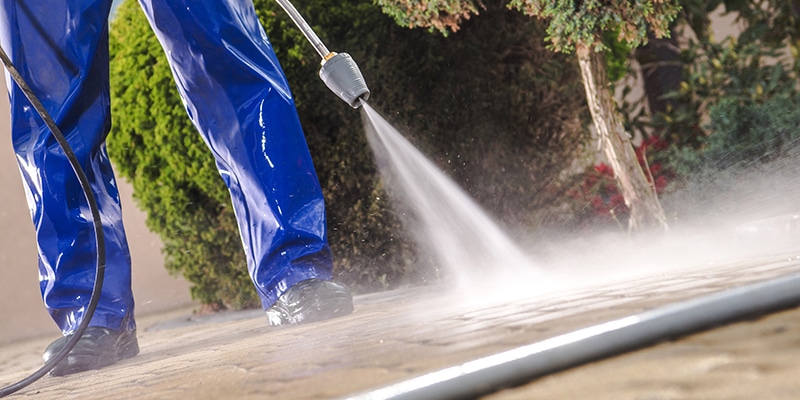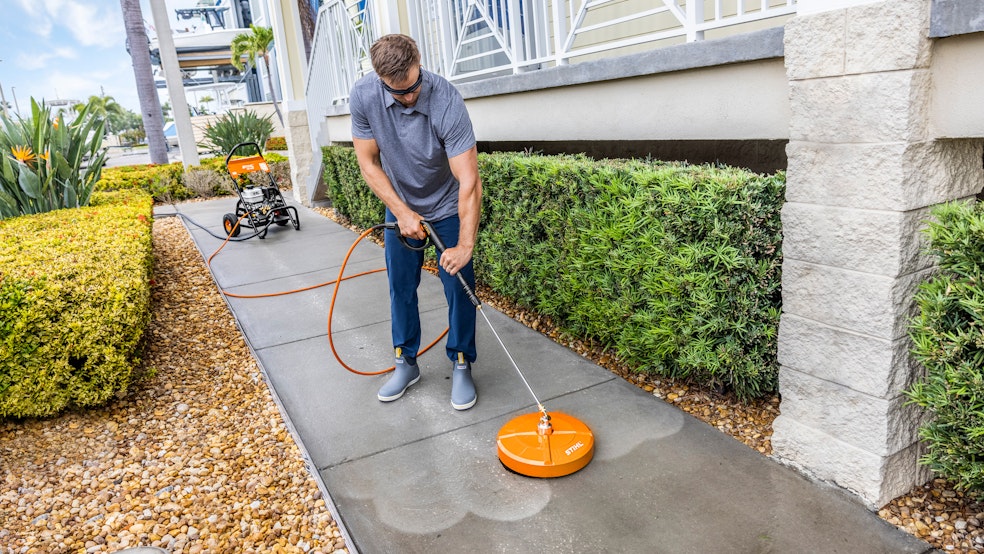The Ultimate Overview to Effective Pressure Washing Kansas City Techniques
The Environmental Benefits of Pressure Washing: A Cleaner Home and World
Pressure washing is greater than just an efficient cleansing technique; it personifies a dedication to ecological stewardship. By making use of high-pressure water, this strategy lessens the dependence on rough chemicals, therefore reducing dirt and water contamination. It preserves water sources, making use of substantially much less than conventional approaches. Beyond water preservation, pressure cleaning likewise plays a critical role in improving air quality by removing pollutants and allergens. Furthermore, it enhances residential or commercial property longevity by protecting against surface area damages. What usually goes undetected, however, is just how these advantages collectively contribute to a lasting and much healthier community. But what are the much deeper ramifications of these advantages?
Lowers Chemical Use
Lowering chemical use is just one of the considerable environmental benefits of pressure cleaning. Traditional cleansing techniques usually rely greatly on harsh chemicals to efficiently get rid of dirt, crud, and stains from different surface areas. These chemicals can be destructive to the setting, polluting dirt and water sources, and positioning dangers to both human wellness and wildlife. Pressure cleaning, on the various other hand, utilizes the power of highly pressurized water to accomplish the very same, if not much better, cleansing outcomes without the need for these damaging materials.
The high-pressure water stream can dislodge and wash away even one of the most persistent impurities, such as mold and mildew, mold, algae, and accumulated dust, from surface areas consisting of driveways, decks, and structure outsides. This lowers the dependence on chemical cleaning agents and solvents, consequently alleviating their ecological influence. Furthermore, pressure cleaning makes sure that surfaces are not simply ostensibly tidy however deeply sterilized, stopping the need for repeated chemical applications in time. By taking on pressure washing, organizations and house owners can add to a cleaner atmosphere, decrease their ecological impact, and promote a much healthier ecosystem. This approach exemplifies a effective and lasting strategy to preserving cleanliness and health.
Conserves Water

A typical garden hose, as an example, can use up to 10 gallons of water per min, whereas pressure washing machines average around 2-5 gallons per minute. This plain difference shows the water preservation capacity of pressure washing, making it a much more sustainable choice for house owners and organizations alike. By utilizing pressurized streams, these tools make sure that every drop of water is utilized efficiently, reducing overall intake and decreasing waste.
Moreover, the performance of pressure cleaning translates to faster her response cleaning times, which additionally contributes to water preservation. Adopting pressure washing not only promotes cleaner surface areas but additionally supports wider environmental sustainability by conserving one of our world's priceless resources.
Boosts Air Quality
Pressure cleaning not only saves water but likewise substantially improves air quality, providing one more crucial environmental benefit. By removing these toxins, pressure washing straight reduces the amount of hazardous particles launched into the atmosphere.
Moreover, pressure cleaning can assist reduce the spread of spores and bacteria that grow in moist, unclean atmospheres - power washing kansas city. When surface areas are extensively cleaned, the chance of these bacteria becoming air-borne is reduced, resulting in a much healthier living atmosphere. This is particularly crucial in city locations where air quality is often jeopardized by higher levels of air pollution
By successfully cleaning up surfaces, pressure washing decreases the existence of these damaging compounds, contributing to a cleaner and more secure environment. Therefore, pressure cleaning plays a crucial function in improving air top quality and advertising overall environmental health and wellness.

Protects Against Surface Area Damages
The preservation of structural stability stands as a vital ecological benefit of pressure washing. Surface areas such as block, concrete, and wood can collect dust, mold, algae, and other contaminants in time. These components are not only unsightly but additionally add to the gradual wear and tear of products. Mold and algae can maintain wetness, which leads to the decay of wood structures and the disintegration of concrete and block surface areas. Routine pressure washing efficiently gets rid of try here these hazardous materials, therefore preventing surface area damages and lowering the demand for frequent repair services or replacements.
Pressure washing gets rid of these deposits, ensuring that the surface areas remain robust and undamaged. By mitigating surface area damage, pressure cleaning helps in keeping the initial toughness and look of different materials, hence adding to an extra lasting and environmentally-friendly living atmosphere.
Boosts Residential Or Commercial Property Durability
A vital advantage of pressure washing is its capacity to substantially enhance residential property long life. Regular pressure washing eliminates hazardous substances such as mold and mildew, mildew, algae, and dirt that collect on surfaces over time.
Furthermore, the removal of harsh components like salt and toxins from surfaces such as concrete, timber, and steel can protect against the beginning of corrosion and degeneration. This proactive maintenance approach makes sure that products like home siding, decks, and driveways stay in optimal condition for a longer duration. Subsequently, homeowner can prevent frequent maintenance cycles and the ecological influence associated with the production and disposal of building products.
In addition, pressure cleaning can additionally extend the life of paint and finishes. By maintaining surface areas tidy, it minimizes the requirement for frequent repainting, therefore saving sources and decreasing chemical runoff into the environment. In general, pressure cleaning is a lasting technique that adds to both residential or commercial property durability and environmental preservation.
Final Thought
In recap, pressure washing offers considerable environmental advantages by decreasing the reliance on extreme chemicals, saving water, enhancing air quality, and avoiding surface damage. This method not only extends the long life of products however likewise supports sustainable practices and contributes to a healthier ecosystem. By taking on pressure cleaning, a cleaner home and earth can be achieved, therefore advertising both ecological stewardship and the wellness of surrounding areas.
In addition to decreasing chemical usage, pressure washing additionally saves water, highlighting its ecological benefits. Adopting pressure cleaning not only advertises cleaner surfaces but likewise sustains broader ecological sustainability by preserving one of our world's priceless try this sources.Pressure cleaning not only conserves water yet likewise significantly boosts air top quality, providing another crucial environmental advantage. By efficiently cleaning surface areas, pressure cleaning decreases the visibility of these damaging compounds, adding to a cleaner and safer environment.In summary, pressure cleaning offers significant environmental benefits by decreasing the reliance on rough chemicals, conserving water, improving air quality, and preventing surface damage.